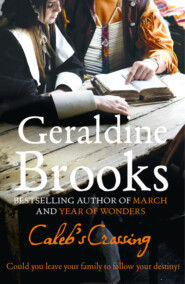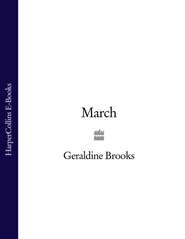По всем вопросам обращайтесь на: info@litportal.ru
(©) 2003-2024.
✖
Year of Wonders
Настройки чтения
Размер шрифта
Высота строк
Поля
Year of Wonders
Geraldine Brooks
From the Pulitzer Prize-winning author of ‘March’ and ‘People of the Book’.A young woman’s struggle to save her family and her soul during the extraordinary year of 1666, when plague suddenly struck a small Derbyshire village.In 1666, plague swept through London, driving the King and his court to Oxford, and Samuel Pepys to Greenwich, in an attempt to escape contagion. The north of England remained untouched until, in a small community of leadminers and hill farmers, a bolt of cloth arrived from the capital. The tailor who cut the cloth had no way of knowing that the damp fabric carried with it bubonic infection.So begins the Year of Wonders, in which a Pennine village of 350 souls confronts a scourge beyond remedy or understanding. Desperate, the villagers turn to sorcery, herb lore, and murderous witch-hunting. Then, led by a young and charismatic preacher, they elect to isolate themselves in a fatal quarantine. The story is told through the eyes of Anna Frith who, at only 18, must contend with the death of her family, the disintegration of her society, and the lure of a dangerous and illicit attraction.Geraldine Brooks’s novel explores love and learning, fear and fanaticism, and the struggle of 17th century science and religion to deal with a seemingly diabolical pestilence. ‘Year of Wonders’ is also an eloquent memorial to the real-life Derbyshire villagers who chose to suffer alone during England’s last great plague.
Year of Wonders
Geraldine Brooks
a novel of the Plague
For Tony.Without you, I never wouldhave gone there.
O let it be enough what thou hast done,When spotted deaths ran arm’d through every street,With poison’d darts, which not the good could shun,The speedy could outfly, or valiant meet.
The living few, and frequent funerals then,Proclaim’d thy wrath on this forsaken place:And now those few who are return’d agenThy searching judgments to their dwellings trace.
From Annus Mirabilis, The Year of Wonders,1666, by John Dryden
Table of Contents
Cover Page (#uea0d8481-d2b1-50fd-859e-237953df8d67)
Title Page (#ue2f92fda-32d5-53bb-85b0-30171c67de16)
Epigraph (#u074ef530-89a3-5647-a93e-0becdc6018e2)
Leaf-Fall, 1666 (#ue23faa88-1637-54d8-9637-270c269dc10b)
Apple-picking Time (#u55c4486a-fd26-5fca-a857-795614048a56)
Spring, 1665 (#u34d8f06c-b279-5967-9c80-c2c9cd8caa91)
Ring of Roses (#u87b1b550-fe20-5985-af33-34edbc7ea38d)
The Thunder of His Voice (#u0f4db404-4a39-5533-b668-e7aadbabdace)
Rat-fall (#uaac63c6e-1243-5c3f-bec9-b63cd10a81ef)
Sign of a Witch (#litres_trial_promo)
Venom in the Blood (#litres_trial_promo)
Wide Green Prison (#litres_trial_promo)
So Soon to Be Dust (#litres_trial_promo)
The Poppies of Lethe (#litres_trial_promo)
Among Those That Go Down to the Pit (#litres_trial_promo)
The Body of the Mine (#litres_trial_promo)
The Press of Their Ghosts (#litres_trial_promo)
A Great Burning (#litres_trial_promo)
Deliverance (#litres_trial_promo)
Leaf-Fall, 1666 (#litres_trial_promo)
Apple-picking Time (#litres_trial_promo)
Epilogue (#litres_trial_promo)
Afterword (#litres_trial_promo)
Praise (#litres_trial_promo)
Also by Geraldine Brooks (#litres_trial_promo)
Copyright (#litres_trial_promo)
About the Publisher (#litres_trial_promo)
Leaf-Fall, 1666 (#ulink_aee824e1-a161-50ce-81ea-5d7696eedc45)
Apple-picking Time (#ulink_e3842d02-f9b2-5b98-9eed-8107da5222d4)
I used to love this season. The wood stacked by the door, the tang of its sap still speaking of forest. The hay made, all golden in the low afternoon light. The rumble of the apples tumbling into the cellar bins. Smells and sights and sounds that said this year it would be all right: there’d be food and warmth for the babies by the time the snows came. I used to love to walk in the apple orchard at this time of the year, to feel the soft give underfoot when I trod on a fallen fruit. Thick, sweet scents of rotting apple and wet wood. This year, the hay stooks are few and the woodpile scant, and neither matters much to me.
They brought the apples yesterday, a cartload for the rectory cellar. Late pickings, of course: I saw brown spots on more than a few. I had words with the carter over it, but he told me we were lucky to get as good as we got, and I suppose it’s true enough. There are so few people to do the picking. So few people to do anything. And those of us who are left walk around as if we’re half asleep. We are all so tired.
I took an apple that was crisp and good and sliced it, thin as paper, and carried it into that dim room where he sits, still and silent. His hand is on the Bible, but he never opens it. Not anymore. I asked him if he’d like me to read it to him. He turned his head to look at me, and I started. It was the first time he’d looked at me in days. I’d forgotten what his eyes could do – what they could make us do – when he stared down from the pulpit and held us, one by one, in his gaze. His eyes are the same, but his face has altered so, drawn and haggard, each line etched deep. When he came here, just three years since, the whole village made a jest of his youthful looks and laughed at the idea of being preached at by such a pup. If they saw him now, they would not laugh, even if they could remember how to do so.
‘You cannot read, Anna.’
‘To be sure, I can, Rector. Mrs. Mompellion taught me.’
He winced and turned away as I mentioned her, and instantly I regretted it. He does not trouble to bind his hair these days, and from where I stood the long, dark fall of it hid his face, so that I could not read his expression. But his voice, when he spoke again, was composed enough. ‘Did she so? Did she so?’ he muttered. ‘Well, then, perhaps one day I’ll hear you and see what kind of a job she made of it. But not today, thank you, Anna. Not today. That will be all.’
A servant has no right to stay, once she’s dismissed. But I did stay, plumping the cushion, placing a shawl. He won’t let me lay a fire. He won’t let me give him even that little bit of comfort. Finally, when I’d run out of things to pretend to do, I left him.
In the kitchen, I chose a couple of the spotted apples I’d culled from the buckets and walked out to the stables. The courtyard hadn’t been swept in a sennight. It smelled of rotting straw and horse piss. I had to hitch up my skirt to keep it off the muck. Before I was halfway across, I could hear the thud of his horse’s rump as he turned and strutted in his confinement, gouging clefts into the floor of the stall. There’s no one strong or skilled enough now to handle him.
The stable boy, whose job it was to keep the courtyard raked, was asleep on the floor of the tack room. He jumped when he saw me, making a great show of searching for the snath that had slipped from his hand when he’d dozed off. The sight of the scythe blade still upon his workbench vexed me, for I’d asked him to mend it long since, and the timothy now was naught but blown seed head and no longer worth the cutting. I was set to scold him about this, and about the filth outside, but his poor face, so pinched and exhausted, made me swallow the words.
Dust motes sparkled in the sudden shaft of sunlight as I opened the stable door. The horse stopped his pawing, holding one hoof aloft and blinking in the unfamiliar glare. Then he reared up on his muscled haunches and punched the air, saying, as plainly as he could, ‘If you aren’t him, get out of here.’ Although I don’t know when a brush was last laid on him, his coat still gleamed like bronze where the light touched it. When Mr. Mompellion had arrived here on this horse, the common talk had been that such a fine stallion was no fit steed for a priest. And people liked not to hear the rector calling him Anteros, after one of the old Puritans told them it was the name of a pagan idol. When I made so bold as to ask Mr. Mompellion about it, he had only laughed and said that even Puritans should recall that pagans, too, are children of God and their stories part of His creation.
I stood with my back pressed against the stall, talking gently to the great horse. ‘Ah, I’m so sorry you’re cramped up in here all day. I brought you a small something.’ Slowly, I reached into the pocket of my pinafore and held out an apple. He turned his massive head a little, showing me the white of one liquid eye. I kept prattling, softly, as I used to with the children when they were scared or hurt. ‘You like apples. I know you do. Go on, then, and have it.’ He pawed the ground again, but with less conviction. Slowly, his nostrils flaring as he studied the scent of the apple, and of me, he stretched his broad neck toward me. His mouth was soft as a glove, and warm, as it brushed my hand, taking the apple in a single bite. As I reached into my pocket for the second one, he tossed his head and the apple juice sprayed. He was up now, angrily boxing the air, and I knew I’d lost the moment. I dropped the other apple on the floor of the stall and slid out quickly, resting my back against the closed door, wiping a string of horse spittle from my face. The stable boy slid his eyes at me and went silently on with his mending.
Geraldine Brooks
From the Pulitzer Prize-winning author of ‘March’ and ‘People of the Book’.A young woman’s struggle to save her family and her soul during the extraordinary year of 1666, when plague suddenly struck a small Derbyshire village.In 1666, plague swept through London, driving the King and his court to Oxford, and Samuel Pepys to Greenwich, in an attempt to escape contagion. The north of England remained untouched until, in a small community of leadminers and hill farmers, a bolt of cloth arrived from the capital. The tailor who cut the cloth had no way of knowing that the damp fabric carried with it bubonic infection.So begins the Year of Wonders, in which a Pennine village of 350 souls confronts a scourge beyond remedy or understanding. Desperate, the villagers turn to sorcery, herb lore, and murderous witch-hunting. Then, led by a young and charismatic preacher, they elect to isolate themselves in a fatal quarantine. The story is told through the eyes of Anna Frith who, at only 18, must contend with the death of her family, the disintegration of her society, and the lure of a dangerous and illicit attraction.Geraldine Brooks’s novel explores love and learning, fear and fanaticism, and the struggle of 17th century science and religion to deal with a seemingly diabolical pestilence. ‘Year of Wonders’ is also an eloquent memorial to the real-life Derbyshire villagers who chose to suffer alone during England’s last great plague.
Year of Wonders
Geraldine Brooks
a novel of the Plague
For Tony.Without you, I never wouldhave gone there.
O let it be enough what thou hast done,When spotted deaths ran arm’d through every street,With poison’d darts, which not the good could shun,The speedy could outfly, or valiant meet.
The living few, and frequent funerals then,Proclaim’d thy wrath on this forsaken place:And now those few who are return’d agenThy searching judgments to their dwellings trace.
From Annus Mirabilis, The Year of Wonders,1666, by John Dryden
Table of Contents
Cover Page (#uea0d8481-d2b1-50fd-859e-237953df8d67)
Title Page (#ue2f92fda-32d5-53bb-85b0-30171c67de16)
Epigraph (#u074ef530-89a3-5647-a93e-0becdc6018e2)
Leaf-Fall, 1666 (#ue23faa88-1637-54d8-9637-270c269dc10b)
Apple-picking Time (#u55c4486a-fd26-5fca-a857-795614048a56)
Spring, 1665 (#u34d8f06c-b279-5967-9c80-c2c9cd8caa91)
Ring of Roses (#u87b1b550-fe20-5985-af33-34edbc7ea38d)
The Thunder of His Voice (#u0f4db404-4a39-5533-b668-e7aadbabdace)
Rat-fall (#uaac63c6e-1243-5c3f-bec9-b63cd10a81ef)
Sign of a Witch (#litres_trial_promo)
Venom in the Blood (#litres_trial_promo)
Wide Green Prison (#litres_trial_promo)
So Soon to Be Dust (#litres_trial_promo)
The Poppies of Lethe (#litres_trial_promo)
Among Those That Go Down to the Pit (#litres_trial_promo)
The Body of the Mine (#litres_trial_promo)
The Press of Their Ghosts (#litres_trial_promo)
A Great Burning (#litres_trial_promo)
Deliverance (#litres_trial_promo)
Leaf-Fall, 1666 (#litres_trial_promo)
Apple-picking Time (#litres_trial_promo)
Epilogue (#litres_trial_promo)
Afterword (#litres_trial_promo)
Praise (#litres_trial_promo)
Also by Geraldine Brooks (#litres_trial_promo)
Copyright (#litres_trial_promo)
About the Publisher (#litres_trial_promo)
Leaf-Fall, 1666 (#ulink_aee824e1-a161-50ce-81ea-5d7696eedc45)
Apple-picking Time (#ulink_e3842d02-f9b2-5b98-9eed-8107da5222d4)
I used to love this season. The wood stacked by the door, the tang of its sap still speaking of forest. The hay made, all golden in the low afternoon light. The rumble of the apples tumbling into the cellar bins. Smells and sights and sounds that said this year it would be all right: there’d be food and warmth for the babies by the time the snows came. I used to love to walk in the apple orchard at this time of the year, to feel the soft give underfoot when I trod on a fallen fruit. Thick, sweet scents of rotting apple and wet wood. This year, the hay stooks are few and the woodpile scant, and neither matters much to me.
They brought the apples yesterday, a cartload for the rectory cellar. Late pickings, of course: I saw brown spots on more than a few. I had words with the carter over it, but he told me we were lucky to get as good as we got, and I suppose it’s true enough. There are so few people to do the picking. So few people to do anything. And those of us who are left walk around as if we’re half asleep. We are all so tired.
I took an apple that was crisp and good and sliced it, thin as paper, and carried it into that dim room where he sits, still and silent. His hand is on the Bible, but he never opens it. Not anymore. I asked him if he’d like me to read it to him. He turned his head to look at me, and I started. It was the first time he’d looked at me in days. I’d forgotten what his eyes could do – what they could make us do – when he stared down from the pulpit and held us, one by one, in his gaze. His eyes are the same, but his face has altered so, drawn and haggard, each line etched deep. When he came here, just three years since, the whole village made a jest of his youthful looks and laughed at the idea of being preached at by such a pup. If they saw him now, they would not laugh, even if they could remember how to do so.
‘You cannot read, Anna.’
‘To be sure, I can, Rector. Mrs. Mompellion taught me.’
He winced and turned away as I mentioned her, and instantly I regretted it. He does not trouble to bind his hair these days, and from where I stood the long, dark fall of it hid his face, so that I could not read his expression. But his voice, when he spoke again, was composed enough. ‘Did she so? Did she so?’ he muttered. ‘Well, then, perhaps one day I’ll hear you and see what kind of a job she made of it. But not today, thank you, Anna. Not today. That will be all.’
A servant has no right to stay, once she’s dismissed. But I did stay, plumping the cushion, placing a shawl. He won’t let me lay a fire. He won’t let me give him even that little bit of comfort. Finally, when I’d run out of things to pretend to do, I left him.
In the kitchen, I chose a couple of the spotted apples I’d culled from the buckets and walked out to the stables. The courtyard hadn’t been swept in a sennight. It smelled of rotting straw and horse piss. I had to hitch up my skirt to keep it off the muck. Before I was halfway across, I could hear the thud of his horse’s rump as he turned and strutted in his confinement, gouging clefts into the floor of the stall. There’s no one strong or skilled enough now to handle him.
The stable boy, whose job it was to keep the courtyard raked, was asleep on the floor of the tack room. He jumped when he saw me, making a great show of searching for the snath that had slipped from his hand when he’d dozed off. The sight of the scythe blade still upon his workbench vexed me, for I’d asked him to mend it long since, and the timothy now was naught but blown seed head and no longer worth the cutting. I was set to scold him about this, and about the filth outside, but his poor face, so pinched and exhausted, made me swallow the words.
Dust motes sparkled in the sudden shaft of sunlight as I opened the stable door. The horse stopped his pawing, holding one hoof aloft and blinking in the unfamiliar glare. Then he reared up on his muscled haunches and punched the air, saying, as plainly as he could, ‘If you aren’t him, get out of here.’ Although I don’t know when a brush was last laid on him, his coat still gleamed like bronze where the light touched it. When Mr. Mompellion had arrived here on this horse, the common talk had been that such a fine stallion was no fit steed for a priest. And people liked not to hear the rector calling him Anteros, after one of the old Puritans told them it was the name of a pagan idol. When I made so bold as to ask Mr. Mompellion about it, he had only laughed and said that even Puritans should recall that pagans, too, are children of God and their stories part of His creation.
I stood with my back pressed against the stall, talking gently to the great horse. ‘Ah, I’m so sorry you’re cramped up in here all day. I brought you a small something.’ Slowly, I reached into the pocket of my pinafore and held out an apple. He turned his massive head a little, showing me the white of one liquid eye. I kept prattling, softly, as I used to with the children when they were scared or hurt. ‘You like apples. I know you do. Go on, then, and have it.’ He pawed the ground again, but with less conviction. Slowly, his nostrils flaring as he studied the scent of the apple, and of me, he stretched his broad neck toward me. His mouth was soft as a glove, and warm, as it brushed my hand, taking the apple in a single bite. As I reached into my pocket for the second one, he tossed his head and the apple juice sprayed. He was up now, angrily boxing the air, and I knew I’d lost the moment. I dropped the other apple on the floor of the stall and slid out quickly, resting my back against the closed door, wiping a string of horse spittle from my face. The stable boy slid his eyes at me and went silently on with his mending.








